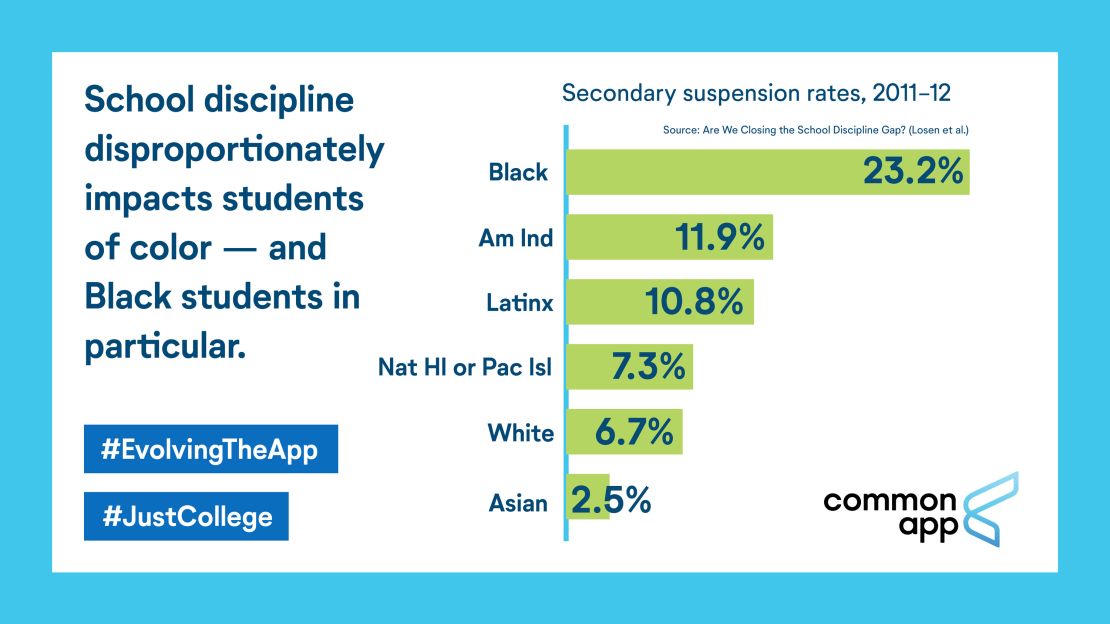The Common Application is removing a question asking applicants to report whether they’ve been cited for a disciplinary violation in high school after their research found that the answer disproportionately impacted students of color, particularly Black students.
The non-profit organization, which serves more than 900 colleges and universities, eliminated the question after learning that students who disclose school disciplinary records are less likely to submit their college applications, Common App announced in a news release Wednesday.
Black applicants are twice as likely than their White peers to answer yes to the disciplinary violation question, and students who answer yes – predominantly students of color – are more likely not to complete the application, according to Common App.
“When the racial injustices were laid bare this summer with the murder of George Floyd and Breonna Taylor, we really expedited our efforts to change the application process by thinking about the reckoning around race and equality in America,” Jenny Rickard, president and chief executive officer of Common App, told CNN. “We want to make the admissions process more equitable.”

The eliminated question, which has been on the application for 14 years, asked students “Have you ever been found responsible for a disciplinary violation at any educational institution you have attended from the 9th grade (or the international equivalent) forward, whether related to academic misconduct or behavioral misconduct, that resulted in a disciplinary act?”
Students who answered yes must give dates on the incident, explain what happened, and “reflect” on what they learned from the experience.
Common App decided to reevaluate their application process earlier this year in hopes of finding and scrapping questions that stopped students – especially first generation, low income, undocumented, and underrepresented students – from completing the application.
Researchers also found that when high school counselors submit applications for their students, disclosure of disciplinary records is inconsistent.
“There are different policies at school districts that prevents counselors from disclosing whether a student had a disciplinary record, potentially because of what parents in that district lobbied for,” Rickard said. “We learned that Black, Latinx, native, and first generation students are more likely to attend high schools in districts that disclose their disciplinary records.”
More than 3 million applicants, teachers, and counselors use Common App as a tool to efficiently apply to several colleges. Researchers discovered that more than 7,000 students, 52% who were Black or Latinx, who disclosed their school disciplinary record didn’t submit their college application.
“I don’t want students who already feel that the odds are stacked against them in the admission process, because they’re low income or underrepresented, maybe first generation students, get to this question and may have had a disciplinary event and they just give up,” Rickard said.
“My hope in the long term impact is that more disadvantage students who opted out because of this question will finish the application and get the education they deserve.”
Rickard said she hopes that other organizations like Common App, as well as the organization’s college and university members, to become more aware of the impact the school disciplinary question has on students and follow their lead in removing them from their own applications.

